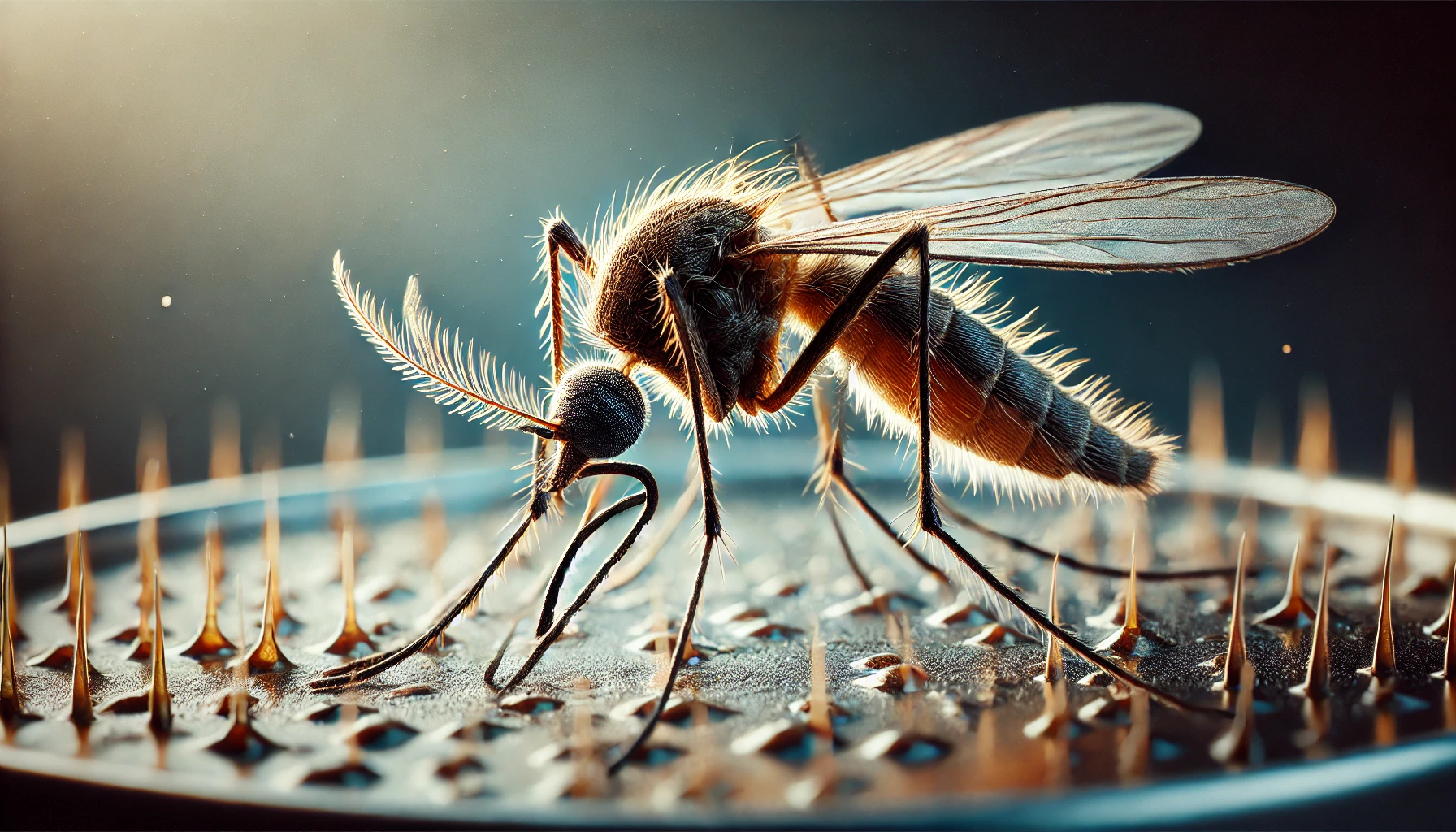
- This event has passed.
World Mosquito Day
August 20

World Mosquito Day, observed every August 20th, serves as a poignant reminder of the significant impact these tiny creatures have on global health. This day commemorates the groundbreaking discovery by British doctor Sir Ronald Ross in 1897, who identified the link between mosquitoes and malaria transmission. The recognition of this day emphasizes ongoing research and initiatives aimed at mosquito control and disease prevention, vital for improving public health worldwide.
The commemoration is crucial not just for historical reflection but also for spotlighting the current challenges and advances in combating mosquito-borne diseases. Despite their small size, mosquitoes are one of the deadliest animals in the world, responsible for millions of malaria cases annually. This day provides a platform for educating the public, promoting preventive measures, and mobilizing resources and support for mosquito control programs.
History and Meaning
World Mosquito Day originated from the discovery made by Sir Ronald Ross when he found that female mosquitoes transmit malaria between humans. This finding was pivotal in understanding the spread of the disease and transforming the approach to public health in malaria-endemic regions. The day was first commemorated by Ross’s colleagues at the London School of Hygiene and Tropical Medicine and has since been recognized worldwide.
The historical significance of this day lies in its role in boosting global awareness and scientific understanding of mosquitoes as vectors of various diseases, including Zika, dengue, chikungunya, and yellow fever. It underscores the ongoing battle against these life-threatening diseases and highlights the crucial need for innovative research in mosquito control and disease prevention.
Traditions and Rituals
Traditionally, World Mosquito Day is marked by conferences, symposiums, and seminars hosted by health organizations and research institutions around the globe. These events focus on sharing the latest research, discussing strategies for disease control, and evaluating progress towards eradicating mosquito-borne diseases. Health professionals, researchers, and policymakers come together to foster collaboration and exchange knowledge on the best practices for mosquito control.
Community outreach and public health campaigns are also common, aiming to educate people on how to protect themselves from mosquito bites and the importance of eliminating stagnant water where mosquitoes breed. These activities are crucial in regions heavily impacted by diseases transmitted by mosquitoes, helping to reduce the incidence of these diseases through community participation and preventive actions.
Modern Celebration of the Day
In recent years, the observance of World Mosquito Day has included digital campaigns aimed at increasing public engagement online. Social media platforms play a crucial role in spreading awareness, with hashtags and online challenges that encourage preventive behaviors and support for mosquito control initiatives. This modern approach leverages technology to reach a broader audience and inspire global participation in reducing the mosquito-borne disease burden.
Educational initiatives are also enhanced with virtual reality experiences and mobile apps designed to simulate disease transmission and demonstrate the effectiveness of preventive measures. These modern tools provide an immersive learning experience, making the information more accessible and impactful for people of all ages, especially in educating young populations in endemic areas.
Congratulations and Wishes
- “Here’s to the bite-sized creatures with a world-sized impact! Happy World Mosquito Day!”
- “On World Mosquito Day, let’s renew our commitment to preventing the spread of malaria. Stay safe and informed!”
- “Wishing you a buzz-free World Mosquito Day! Let’s take a stand against these tiny foes today and every day.”
- “Happy World Mosquito Day! Remember, every small step counts in the fight against mosquito-borne diseases.”
- “Celebrate World Mosquito Day by spreading awareness and taking action to protect your community!”
- “Let’s salute the scientific advancements that help us fight the bite. Happy World Mosquito Day!”
- “On World Mosquito Day, wishing you health and happiness without the itch!”
- “Keep calm and mosquito-proof your home. Wishing you a safe and healthy World Mosquito Day!”
- “Today, let’s highlight the importance of research and cooperation in combating diseases spread by mosquitoes. Happy World Mosquito Day!”
- “A buzz in the air? Just more reason to be aware. Have an informative and proactive World Mosquito Day!”
Unusual Facts
- Mosquitoes are considered the deadliest animals on earth due to their disease-spreading capability.
- A mosquito’s wings beat between 300 and 600 times per second.
- Mosquitoes can detect carbon dioxide from up to 75 feet away.
- Only female mosquitoes bite humans and animals; males feed on nectar.
- Mosquitoes are known to prefer certain blood types over others, particularly Type O.
- They are attracted to body heat and sweat because they need water vapor to lay eggs.
- There are over 3,500 species of mosquitoes worldwide.
- Mosquitoes can fly for up to four miles.
- They have been around since the Jurassic period, making them about 210 million years old.
- The lifespan of a mosquito can vary from two weeks to six months depending on the species.
Frequently Asked Questions
Q: Why is World Mosquito Day important? A: World Mosquito Day highlights the health risks associated with mosquitoes and promotes global efforts to reduce mosquito-borne diseases.
Q: How can individuals protect themselves from mosquitoes? A: Individuals can use insect repellent, wear protective clothing, and eliminate standing water around their homes to reduce mosquito populations.
Q: What are some effective mosquito control methods? A: Effective methods include using insecticide-treated mosquito nets, indoor residual spraying, and community-based activities to eliminate mosquito breeding sites.
Q: Are there any vaccines available for mosquito-borne diseases? A: Yes, there are vaccines for some mosquito-borne diseases like Yellow Fever and Japanese Encephalitis, but not for all, such as Zika or dengue.
Q: How can communities contribute to mosquito control? A: Communities can organize clean-up drives to clear stagnant water, conduct awareness campaigns, and participate in local health initiatives to prevent mosquito breeding.
World Mosquito Day serves as a critical reminder of the global fight against mosquito-borne diseases, which continue to affect millions of people worldwide. It encourages ongoing education, community involvement, and support for scientific research aimed at eradicating these diseases. By commemorating this day, we acknowledge the significant strides made in mosquito control and disease prevention, while also recognizing the challenges that lie ahead.
This day is not just about recognizing the dangers posed by mosquitoes but also about reinforcing the global commitment to public health and disease prevention. It provides an opportunity for everyone to contribute to a cause that has a direct impact on the well-being of communities globally, promoting a unified approach to health and safety.
Why This Day is Important
World Mosquito Day is vital because it brings attention to the diseases transmitted by mosquitoes, which are among the most significant health challenges globally. It promotes widespread awareness and support for prevention measures, crucial for reducing the impact of these diseases on vulnerable populations.
Author’s Opinion
As we observe World Mosquito Day, it is imperative that we not only reflect on past achievements but also focus on future innovations in the fight against mosquito-borne diseases. Supporting research and community-based prevention strategies will be key to our success in this ongoing battle.




